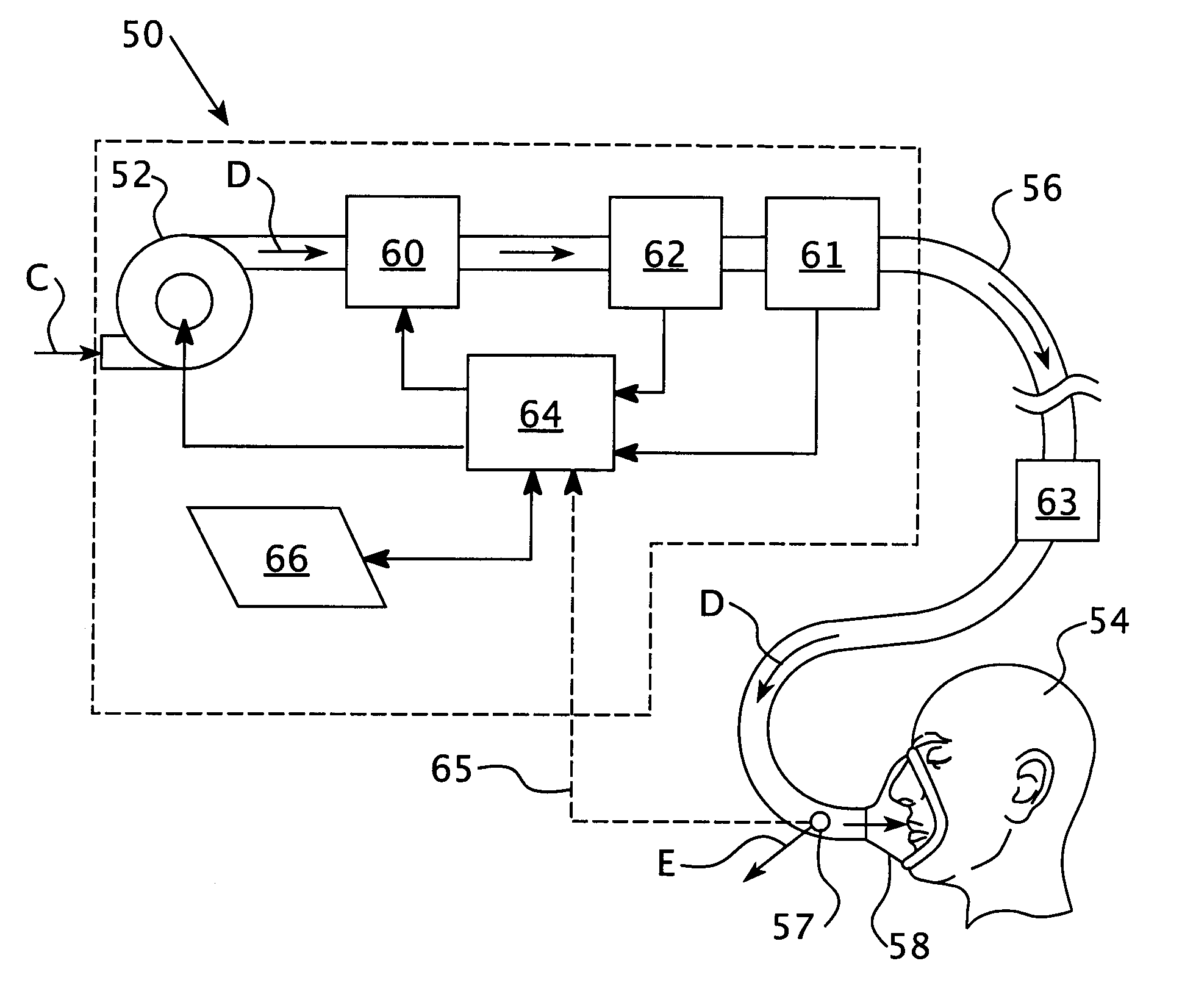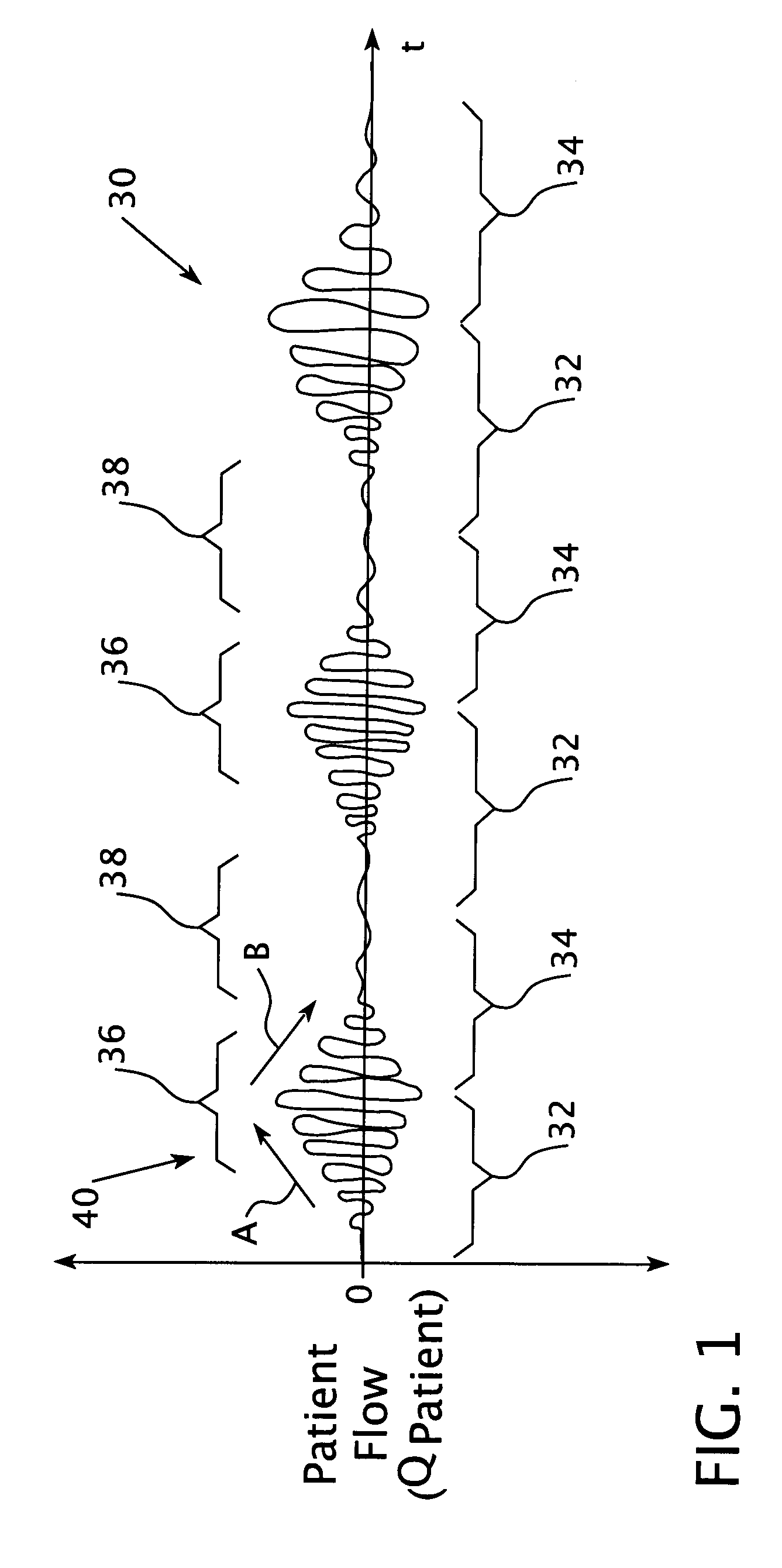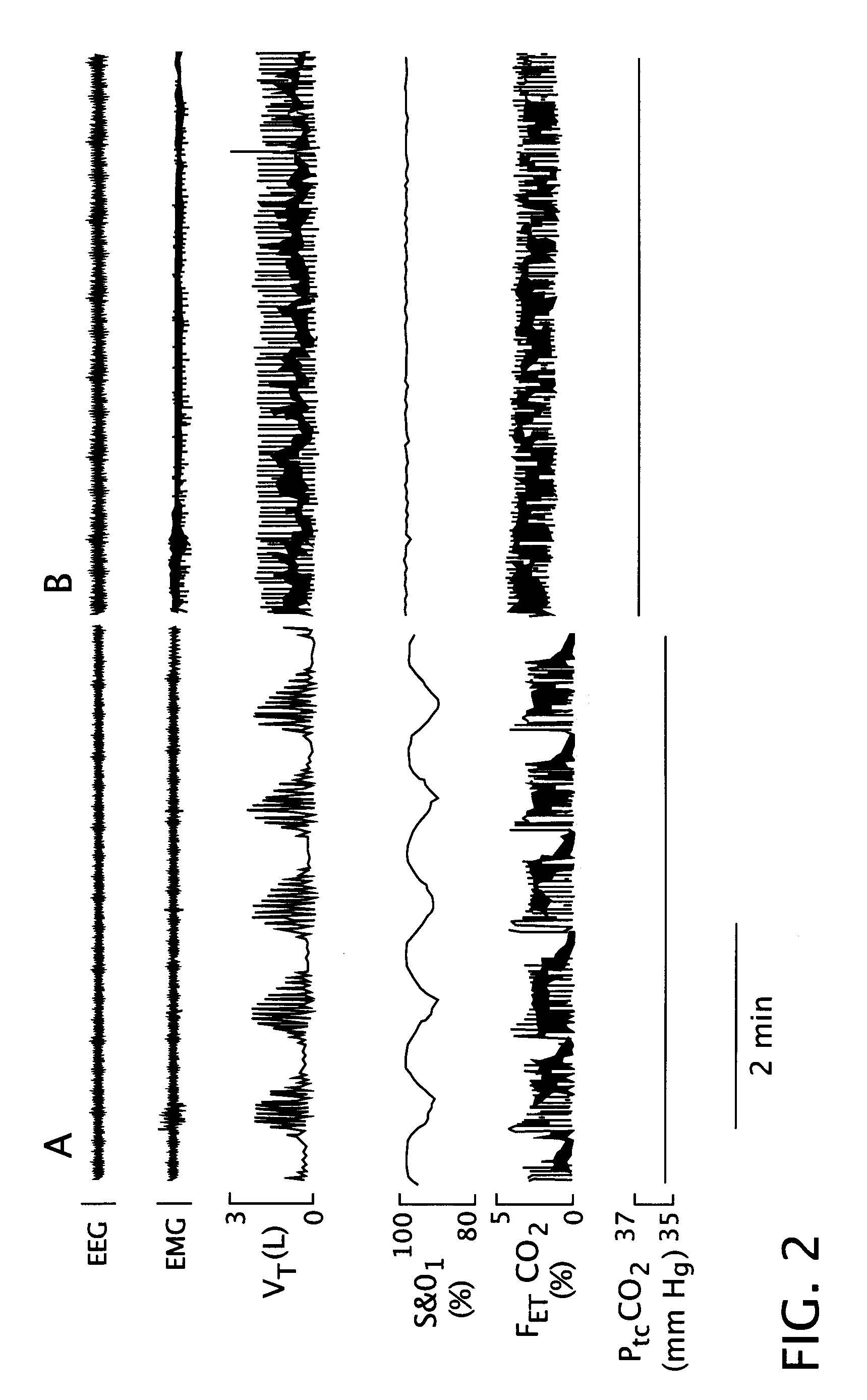Ventilatory control system
a control system and ventilation control technology, applied in the direction of valves, respirators, mechanical equipment, etc., can solve the problems of reducing the gain of the plant compartment, affecting the clinical outcome, and significant residual sdb during therapy, and achieving negative effects on clinical outcomes
- Summary
- Abstract
- Description
- Claims
- Application Information
AI Technical Summary
Benefits of technology
Problems solved by technology
Method used
Image
Examples
Embodiment Construction
[0040] Individuals demonstrating central sleep apnea, Cheyne-Stokes respiration, CPAP emergent central apneas, or other forms of breathing that indicate unstable control of breathing appear to have an elevated loop gain that describes the ventilatory response to a given ventilatory stimulus. The primary contributor to this elevated loop gain is likely an increased sensitivity to carbon dioxide (CO2) by central chemoreceptors (elevated controller gain). The present invention describes a method to counteract this elevated loop gain by lowering the ventilatory plant gain during a state of high respiratory drive and augmenting ventilation during a state of low respiratory drive.
[0041] The functional elements of the apparatus used in the present invention may be similar to those disclosed in the '151 patent. As shown in FIG. 3, a state-dependent positive airway pressure support system 50 includes a gas flow generator 52, such as a blower used in a conventional CPAP or bi-level device, t...
PUM
 Login to View More
Login to View More Abstract
Description
Claims
Application Information
 Login to View More
Login to View More - R&D
- Intellectual Property
- Life Sciences
- Materials
- Tech Scout
- Unparalleled Data Quality
- Higher Quality Content
- 60% Fewer Hallucinations
Browse by: Latest US Patents, China's latest patents, Technical Efficacy Thesaurus, Application Domain, Technology Topic, Popular Technical Reports.
© 2025 PatSnap. All rights reserved.Legal|Privacy policy|Modern Slavery Act Transparency Statement|Sitemap|About US| Contact US: help@patsnap.com



